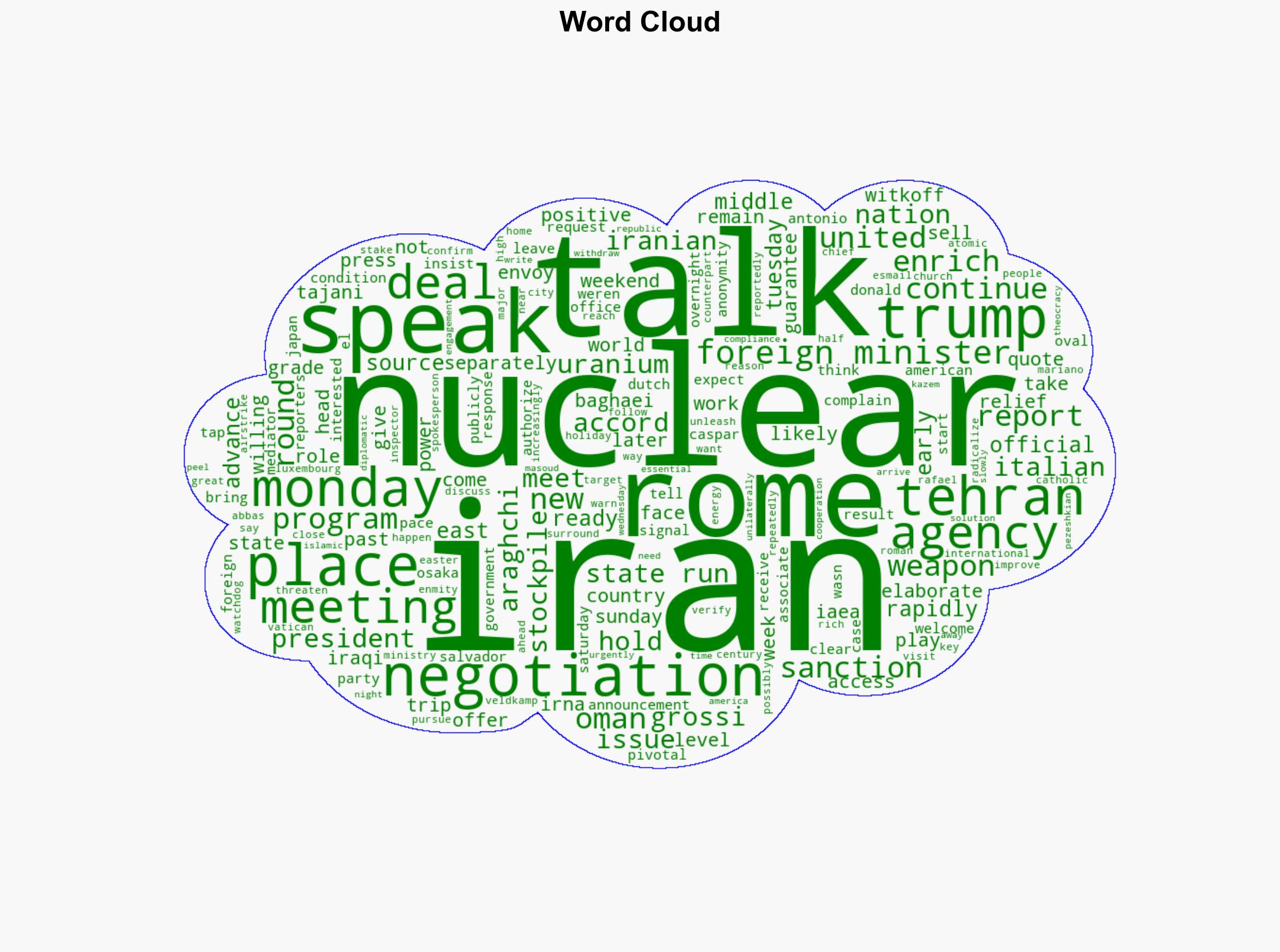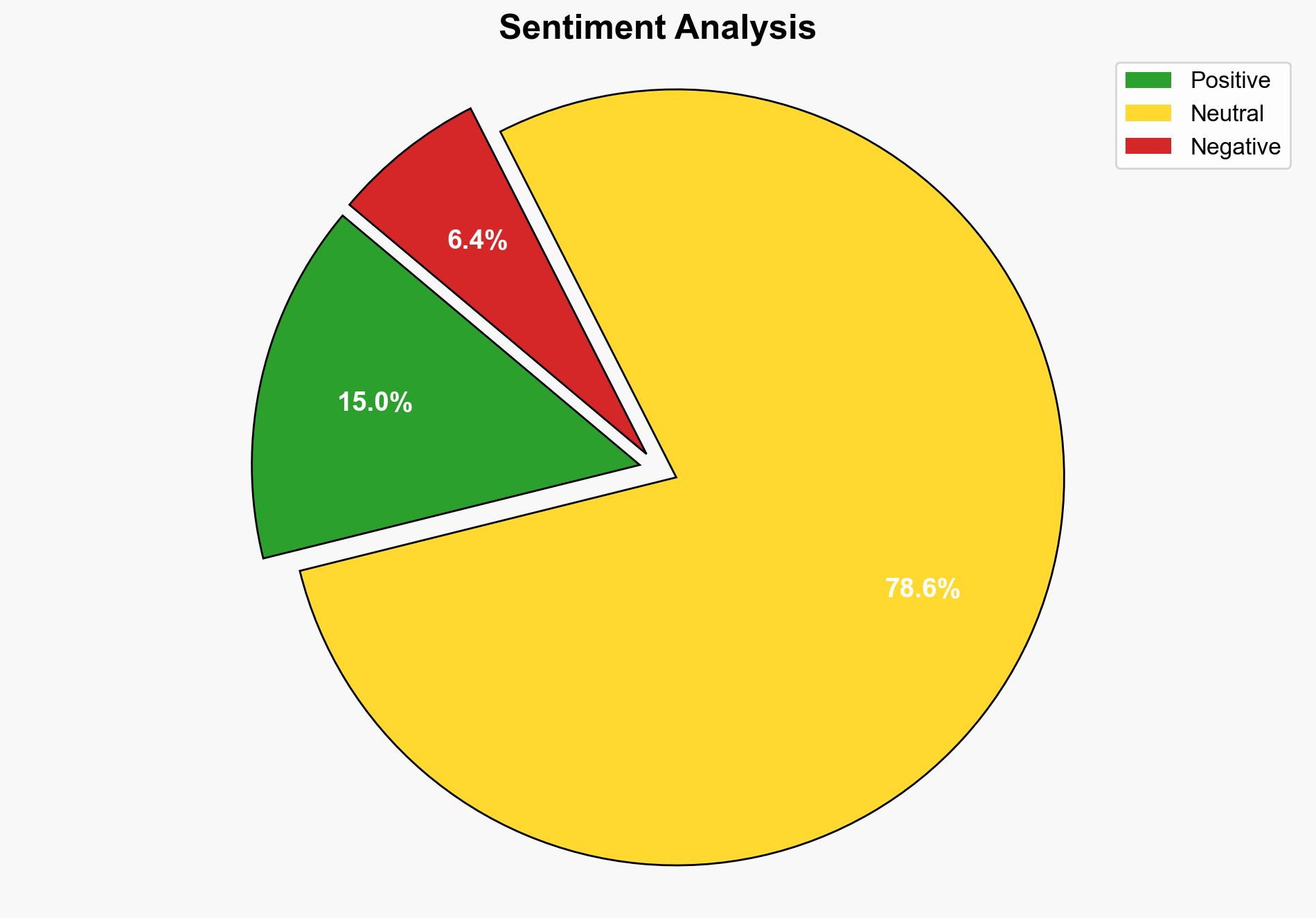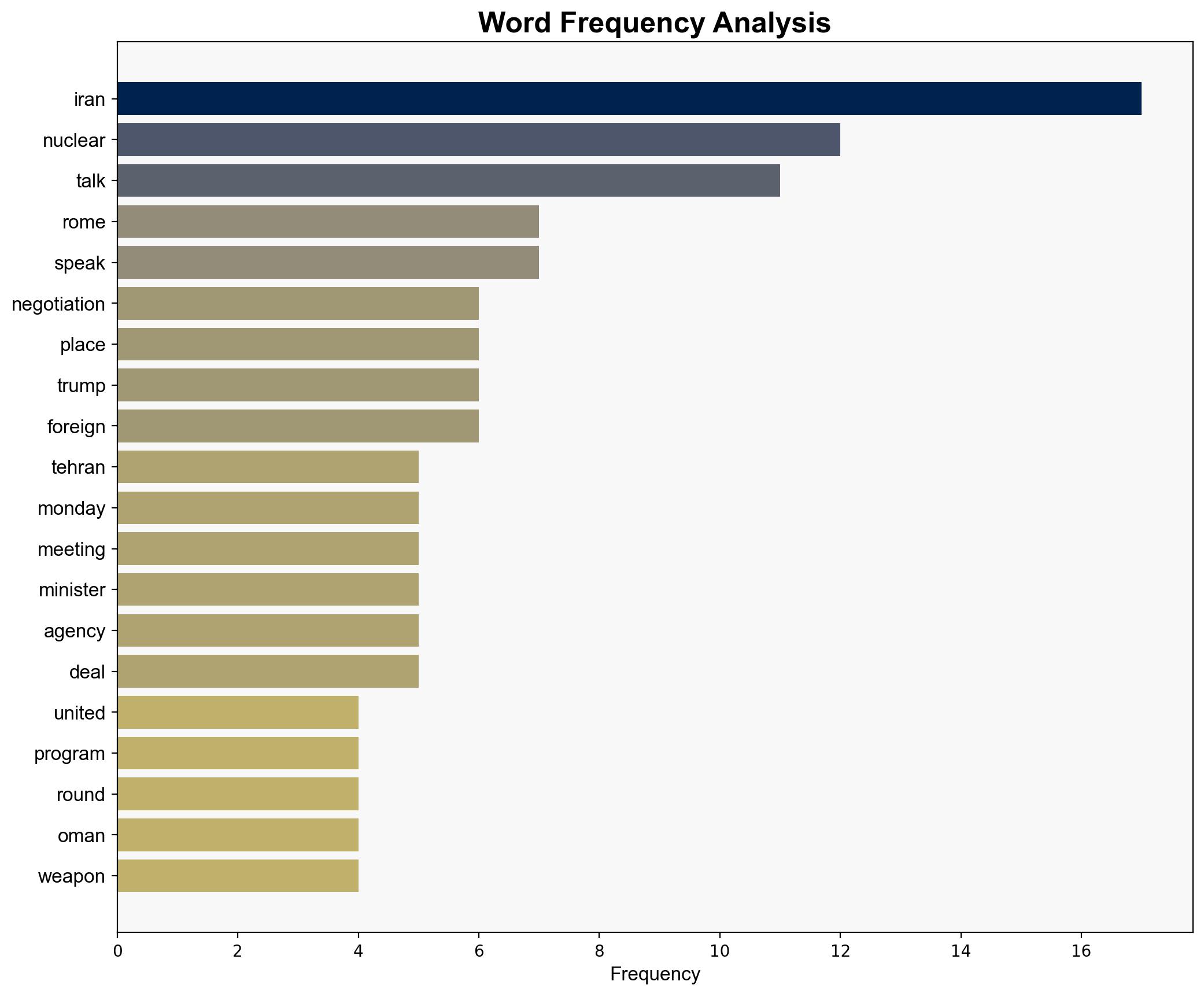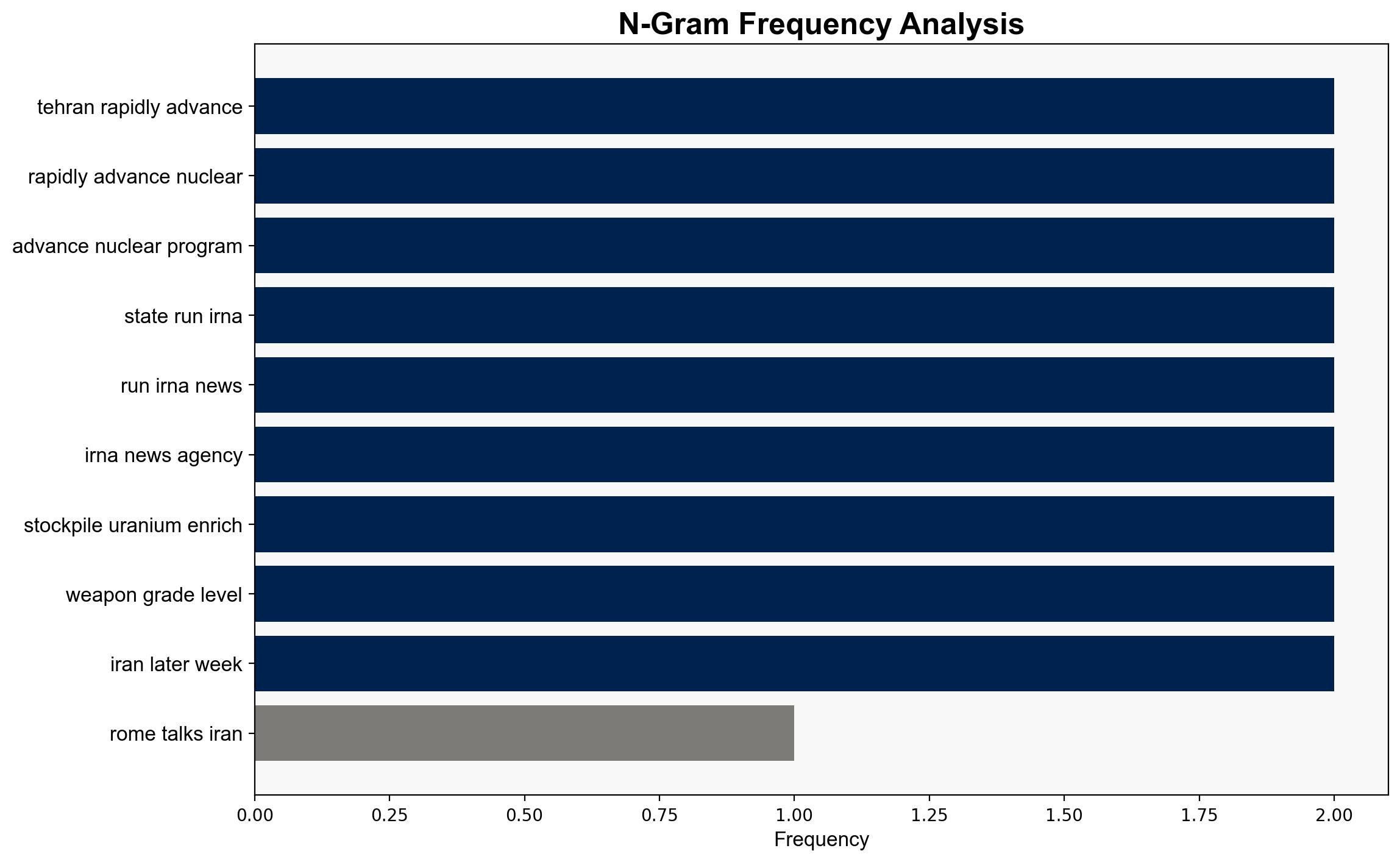Next Round of US-Iran Nuclear Talks Are Set to Continue in Rome – Time
Published on: 2025-04-14
Intelligence Report: Next Round of US-Iran Nuclear Talks Are Set to Continue in Rome – Time
1. BLUF (Bottom Line Up Front)
The upcoming round of nuclear negotiations between the United States and Iran is marked by uncertainty regarding the venue, with conflicting reports about whether the talks will occur in Rome or Oman. This ambiguity underscores the fragile nature of diplomatic engagements between the two nations. The negotiations are critical, given the heightened tensions and potential for military escalation. Immediate clarity on the venue and a strategic approach to the talks are essential to prevent further deterioration of relations and to advance non-proliferation objectives.
2. Detailed Analysis
The following structured analytic techniques have been applied for this analysis:
General Analysis
The negotiations are a continuation of efforts to address Iran’s nuclear capabilities, which have been a point of contention for decades. The shift in venue from the Middle East to Europe, specifically Rome, suggests a strategic move to involve European stakeholders more directly. However, Iran’s insistence on Oman as the venue reflects internal and regional dynamics that complicate the diplomatic process. The involvement of multiple countries, including Italy and the Netherlands, indicates a broader international interest in resolving the issue. The statements from various foreign ministers highlight the diplomatic complexities and the need for a coordinated international approach.
3. Implications and Strategic Risks
The primary risk is the potential for a breakdown in negotiations, which could lead to increased tensions and the possibility of military conflict. The uncertainty surrounding the venue may indicate deeper disagreements that could hinder progress. Regional stability is at risk, particularly if Iran accelerates its nuclear program in response to perceived threats. Economic interests, especially those related to oil markets, could be adversely affected by any escalation in hostilities. The involvement of the United Nations’ nuclear watchdog suggests ongoing concerns about transparency and compliance with international agreements.
4. Recommendations and Outlook
Recommendations:
- Engage in diplomatic efforts to clarify the venue and ensure all parties are aligned on the logistics of the talks.
- Strengthen international coalitions to support the negotiation process and apply pressure for compliance with non-proliferation norms.
- Enhance intelligence-sharing mechanisms to monitor developments and anticipate potential escalations.
Outlook:
In the best-case scenario, the talks proceed smoothly in Rome, leading to a mutually agreeable framework for addressing Iran’s nuclear program. The worst-case scenario involves a collapse of negotiations, resulting in increased regional tensions and potential military actions. The most likely outcome is a continuation of talks with intermittent progress, requiring sustained diplomatic engagement and international support.
5. Key Individuals and Entities
The report mentions significant individuals and organizations involved in the negotiations:
- Donald Trump
- Antonio Tajani
- Caspar Veldkamp
- Abbas Araghchi
- Esmail Baghaei




